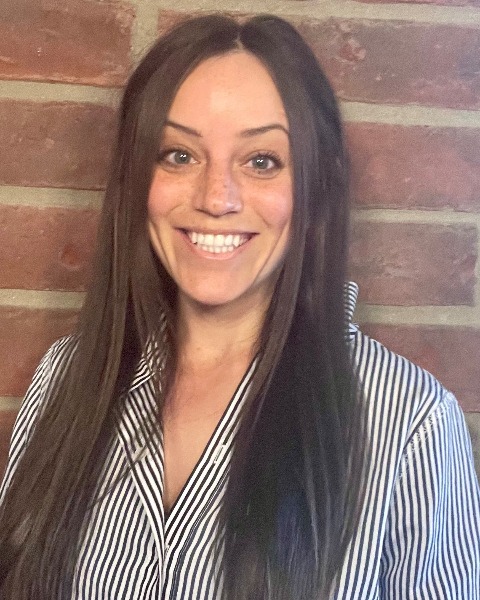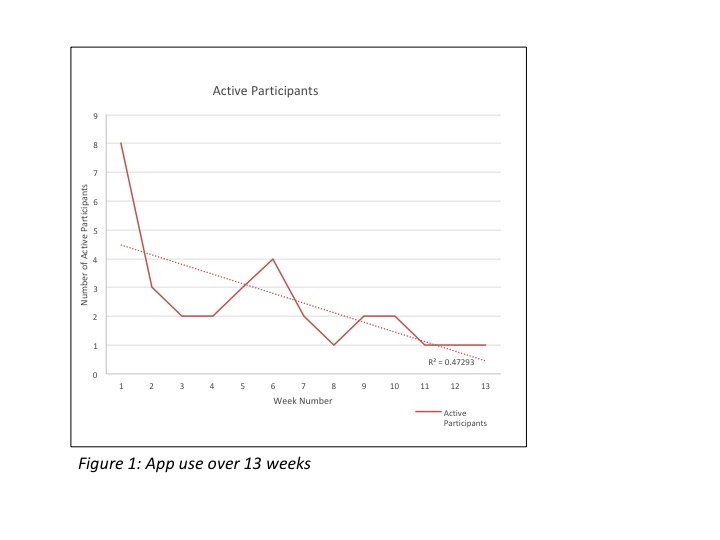Back
Obesity
Category: Abstract Submission
Obesity I
502 - A Mobile Health Weight Loss Intervention With Coaching for Overweight and Obese Adolescents and Young Adults with Spina Bifida (SB)
Saturday, April 23, 2022
3:30 PM – 6:00 PM US MT
Poster Number: 502
Publication Number: 502.238
Publication Number: 502.238
Melissa Bent, Children's Hospital Los Angeles, Los Angeles, CA, United States; Jacquelyn N. Valenzuela-Moss, Children's Hospital Los Angeles, Playa Del Rey, CA, United States; Kathryn Smith, Keck School of Medicine of the University of Southern California, Los Angeles, CA, United States; Patricia Castillo, Children's Hospital Los Angeles, Los Angeles, CA, United States; Alexander Van Speybroeck, Children's Hospital Los Angeles, Los Angeles, CA, United States; Hanna Omar, Children's Hospital Los Angeles, LOS ANGELES, CA, United States; Katherine Antoniak, Children's Hospital Los Angeles, New York, NY, United States; Adrian Lin, Children's Hospital Los Angeles, Los Angeles, CA, United States

Jacquelyn N. Valenzuela-Moss, BS
Clinical Research Coordinator
Children's Hospital Los Angeles
Playa Del Rey, California, United States
Presenting Author(s)
Background: The prevalence of obesity is 34–64% in young adults with SB. The use of mobile technology and coaching are innovative ways to address obesity.
Objective: The primary aim of this study is to evaluate the feasibility of using a mobile app in a 3-month weight management program for adolescents with SB.
Design/Methods: Patients between 11-21 years of age from the CHLA Spina Bifida Clinic identified as overweight and obese defined by BMI were invited to participate. The program consisted of an individualized adaptive exercise plan using PT Pal™ Mobile Health App paired with coaching by an athletic trainer and monthly group virtual nutrition sessions. Outcome measures were changes in BMI and survey responses on the Pediatric Quality of Life Inventory (Peds QL), modified Youth Risk Behavior Survey Questionnaire (YRBS), Mobile App Rating Scale (MARS), and final program evaluation.
Results: Fifteen participants were enrolled and 10 completed the program. The mean age of participants was 16.2 years. Seventy-eight percent of participants decreased their overall BMI with a mean change of 1.51 (SD +/- 2.57). There were a total of 33 individual exercises. Eighty-four percent of attempted exercises were completed. Incomplete exercises were secondary to pain or difficulty. Exercises reported to be the most painful and difficult were the seated crunch and the seated scapular squeeze, respectively. In general, older participants were more active with the app than younger participants. The number of participants utilizing the app declined after the first week. Episodic increases in app use occurred at both the 4-week and 8-week mark, respectively (Figure 1). The mean MARS Score for the PT Pal app was 3.57/5. Three of 10 participants would recommend this app. Nine out of ten participants reported they liked the program overall. All participants reported they would recommend this program to a friend. Participants expressed an increase in self-confidence, an improved belief in themselves to exercise regularly and to adhere to a healthy diet. Peds QL scores decreased from a score of 1428 to 1305. Post-intervention scores showed an increase in psychosocial health. From the YRBS questionnaire, 50% of participants reported being active at least one more day per week, and 60% reported less sedentary time after completing the program.Conclusion(s): A mobile app-based and coaching virtual weight loss program is feasible for young persons with spina bifida. The coaching was highly favored. This information will be useful to build an adaptive coaching and mobile app virtual program for youth with spina bifida to promote activity
Figure 1 App use over 13 weeks
App use over 13 weeks
Objective: The primary aim of this study is to evaluate the feasibility of using a mobile app in a 3-month weight management program for adolescents with SB.
Design/Methods: Patients between 11-21 years of age from the CHLA Spina Bifida Clinic identified as overweight and obese defined by BMI were invited to participate. The program consisted of an individualized adaptive exercise plan using PT Pal™ Mobile Health App paired with coaching by an athletic trainer and monthly group virtual nutrition sessions. Outcome measures were changes in BMI and survey responses on the Pediatric Quality of Life Inventory (Peds QL), modified Youth Risk Behavior Survey Questionnaire (YRBS), Mobile App Rating Scale (MARS), and final program evaluation.
Results: Fifteen participants were enrolled and 10 completed the program. The mean age of participants was 16.2 years. Seventy-eight percent of participants decreased their overall BMI with a mean change of 1.51 (SD +/- 2.57). There were a total of 33 individual exercises. Eighty-four percent of attempted exercises were completed. Incomplete exercises were secondary to pain or difficulty. Exercises reported to be the most painful and difficult were the seated crunch and the seated scapular squeeze, respectively. In general, older participants were more active with the app than younger participants. The number of participants utilizing the app declined after the first week. Episodic increases in app use occurred at both the 4-week and 8-week mark, respectively (Figure 1). The mean MARS Score for the PT Pal app was 3.57/5. Three of 10 participants would recommend this app. Nine out of ten participants reported they liked the program overall. All participants reported they would recommend this program to a friend. Participants expressed an increase in self-confidence, an improved belief in themselves to exercise regularly and to adhere to a healthy diet. Peds QL scores decreased from a score of 1428 to 1305. Post-intervention scores showed an increase in psychosocial health. From the YRBS questionnaire, 50% of participants reported being active at least one more day per week, and 60% reported less sedentary time after completing the program.Conclusion(s): A mobile app-based and coaching virtual weight loss program is feasible for young persons with spina bifida. The coaching was highly favored. This information will be useful to build an adaptive coaching and mobile app virtual program for youth with spina bifida to promote activity
Figure 1
 App use over 13 weeks
App use over 13 weeks